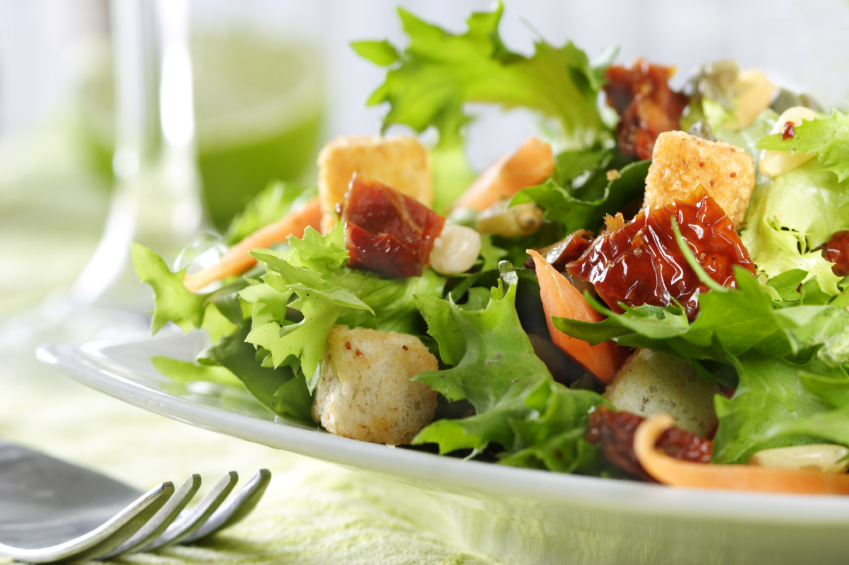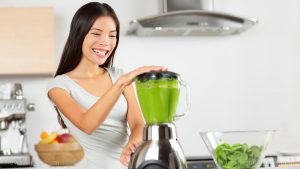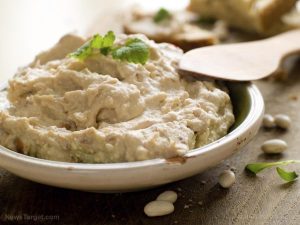
Advertisement
Coriander seeds are a versatile spice made from the dried berries of the coriander plant. This spice offers many health benefits, such as boosting your digestive health and managing diabetes.
Mild, lemony coriander
Coriander (Coriandrum sativum) is a small, hollow-stemmed plant that belongs to the Apiaceae family, which includes carrot, celery and parsley.
Coriander seeds have a subtle and pleasant flavor. Unlike fresh coriander or cilantro, coriander seeds have a mild lemony, earthy flavor that pairs well with other spices like chili pepper and cumin.
You can use coriander seeds whole or ground into a fine yellowish-brown powder. Toast the seeds before grinding to bring out their flavors and aroma.
Coriander seeds contain unsaturated fats that are good for your heart health. They also contain the following vitamins and minerals:
- Calcium
- Carbohydrates
- Dietary fiber
- Magnesium
- Phosphorus
- Potassium
- Protein
- Sodium
- Vitamin C

Reasons to eat coriander seeds
Here are six amazing reasons to eat more coriander seeds:
Coriander seeds have cholesterol-lowering properties
In one study, scientists observed animals on a high-fat diet that were also fed coriander seeds to determine the spice’s potential cholesterol-lowering properties.
Findings showed that the animal subjects had significantly lower cholesterol and triglyceride levels. The test subjects also excreted larger amounts of liver bile acids and neutral sterols in their stools compared to a control group.
Coriander seeds contain beneficial ingredients like ascorbic acid, linoleic acid, oleic acid, palmitic acid and stearic acid that can all help reduce the level of LDL (low-density lipoprotein) or “bad” cholesterol in your body.
LDL cholesterol is considered bad since it gets deposited in the inner walls of your blood arteries, which then restricts blood flow. Following a healthy diet and using coriander seeds can help lower your risk of some heart problems like heart attacks. stroke and atherosclerosis.
Additionally, coriander seeds also help increase the HDL (high-density lipoprotein) or “good” cholesterol in your body.
Coriander seeds can be used to manage your blood pressure
Having excessively high blood pressure increases tension in the blood vessels. If you have high blood pressure, you may benefit from regularly consuming coriander seeds.
Coriander is a catalyst for the interaction of calcium ions and the neurotransmitter cholinergic or acetylcholine. This is important because the chemical interaction relaxes the tense blood vessels, which can lower your risk of heart attack and stroke, both of which are usually fatal.
Coriander seeds can be used to manage diabetes
Data from a study on diabetic rats has shown that a coriander seed extract can help promote insulin activity, which then lowered the glucose levels in the animals’ blood.
The coriander seed extract helped reduce blood glucose in the rats while increasing insulin release from the beta cells of the pancreas. This helped reduce the incidence of sudden spikes in blood sugar levels, allowing other normal metabolic functions to happen as usual.
Coriander seeds can boost your digestive health
Do you suffer from digestive issues? Use coriander seeds to naturally relieve your symptoms and calm inflammation in your digestive system.
If you’re experiencing symptoms of a disturbed digestive system like bloating or flatulence, make a coriander seed smoothie with coconut milk, cucumber ice and a tablespoon of coriander seeds to relieve your symptoms. Consuming a coriander seed smoothie can also help improve nutrient absorption in your intestine.
Coriander seeds can help prevent food poisoning
In another animal study, scientists worked with rabbits that were injected with a toxin called carbon tetrachloride.
The toxin caused liver toxicity in the rabbits and after being administered coriander seeds- and coriander leaves-based sauces, findings showed that the levels of toxicity in the rabbits were reduced.
The study showed that consuming coriander seeds and leaves may help protect humans against liver-kidney toxicity caused by various xenobiotics. This means making coriander seeds a part of your regular diet can help prevent chemical poisoning of the liver and kidneys.
Coriander seeds may help treat colds and the flu
Coriander seeds are full of essential vitamins like beta-carotene, folic acid and vitamin A that can all help prevent the common cold and flu.
The spice is also rich in vitamin C, an antioxidant that supports the cells of your immune system. A 100-gram serving of coriander seed powder contains almost 30 percent of the recommended daily intake of vitamin C, according to the United States Department of Agriculture (USDA).

Cooking with coriander seeds
You can use dried coriander seeds either whole or powdered.
The spice is used to add flavor to food sweet and savory items like cakes, confectionery, sausages, stews and sweetbreads. Coriander seeds are also used to make meat rubs, pickled vegetables and rice dishes.
Store coriander seeds in airtight containers and place them in a dry, cool and dark spot. Whole seeds will last for several months. If you need ground coriander seeds, grind with a hand mill.
Use coriander powder immediately because it loses its flavor quickly once its essential oils evaporate.
Here are two recipes with coriander seeds that you can try at home.
White bean with coriander dip
This recipe for white bean with coriander dip uses olive oil, which is high in beneficial monounsaturated fat. To make a cholesterol-free dip, use vegetable broth instead of chicken broth.
Ingredients for 20 servings:
- 20 sesame breadsticks
- 1 can (16-ounce) cannellini beans or other white beans, rinsed and drained
- 3/4 cup fat-free, less-sodium chicken broth
- 2 Tablespoons chopped fresh flat-leaf parsley
- 1 Tablespoon ground coriander seeds
- 1 Tablespoon olive oil
- 1 1/8 teaspoons hot paprika, divided
- 6 garlic cloves, sliced
Preparation:
- Heat the oil in a small saucepan over medium heat. Add the garlic, coriander and a teaspoon of paprika. Cook for two minutes or until the garlic is tender and lightly browned, stirring constantly.
- Add the beans to the coriander mixture and cook for two minutes, stirring frequently.
- Add the broth to the beans and coriander then bring to a boil. Cover, reduce heat, then and simmer for 15 minutes.
- Place the bean mixture in a food processor and process until smooth. Stir in the parsley.
- Spoon the bean dip into a medium bowl and chill. Sprinkle with 1/8 teaspoon paprika before serving with the breadsticks.
Savory salmon cake with coriander seeds
This recipe pairs salmon with coriander seeds and other spices.
Ingredients for 1 serving:
- 1,000 g (1 kg) salmon fillet
- 1/4 cup ground flax seeds
- 3-inch piece of ginger
- 4 cloves of garlic
- 2 tablespoons coriander seeds
Preparation:
- Preheat the oven to 392 F (200 C). Place the salmon fillet in a lined baking tray, then bake for at least 10 minutes or until the salmon is just cooked.
- Toast the whole coriander seeds in a pan for about five minutes. Grind using a coffee grinder or mortar and pestle.
- Place the ginger and garlic in a blender or food processor and pulse until you have a smooth paste.
- Remove the skin from the cooked salmon then add the fish to the ginger and garlic, along with the ground flax seeds and coriander seeds.
- Pulse again until the salmon breaks down and you have a rough mixture. Roll the mixture into small balls and place into the lined baking tray.
- Bake the salmon balls again for another 10 minutes or until perfectly golden.
Cook with nutritious coriander seeds to give your dishes a flavor boost and improve your digestive health.
Sources:
Advertisements







